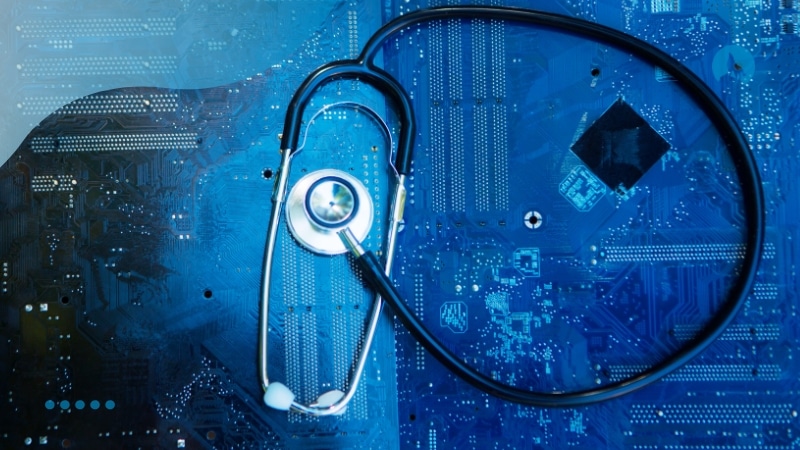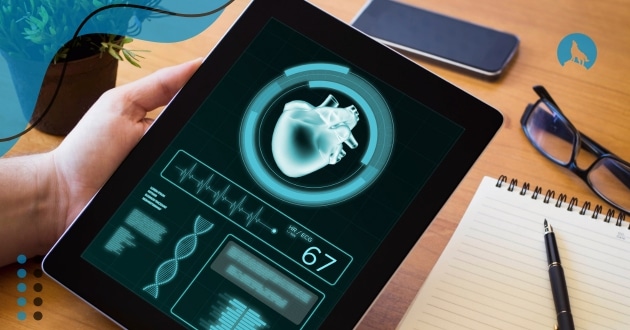Technology advancements in healthcare have revolutionized the way we approach medical treatment, diagnosis, and patient care. From early detection of diseases to personalized treatment plans, cutting-edge technologies are reshaping the healthcare landscape at an unprecedented pace.
In addition to better patient outcomes, technology advancements in healthcare have also contributed to the efficiency and accessibility of healthcare services. With the integration of telemedicine, artificial intelligence, and wearable devices, patients can now receive care remotely, reducing the need for in-person visits and long waiting times.
As a result, the ongoing technology advancements in healthcare continue to push the boundaries of what is possible in medicine. From robotic surgeries to AI-driven diagnostics, these innovations are creating a more dynamic and patient-centered healthcare system.
The Role of Artificial Intelligence in Healthcare

1. AI in Diagnostics
One of the most significant contributions of artificial intelligence (AI) to healthcare is in the area of diagnostics.
AI algorithms can analyze vast amounts of medical data, including images, lab results, and patient records, to identify patterns and make accurate diagnoses faster than traditional methods.
This is particularly beneficial in fields such as radiology, where AI-driven tools can detect early signs of diseases like cancer, often before they are visible to the human eye.
2. AI in Treatment Planning
AI is also transforming how treatment plans are developed. By analyzing patient data and medical histories,
AI systems can recommend personalized treatment strategies that take into account an individual’s unique health profile.
This allows for more targeted therapies and better management of chronic conditions, ultimately leading to improved patient outcomes.
Telemedicine: Expanding Access to Healthcare
1. Benefits of Telemedicine
Telemedicine has emerged as a vital tool in making healthcare more accessible, particularly in remote and underserved areas.
With virtual consultations, patients can connect with healthcare providers from the comfort of their homes, eliminating the need for travel and reducing the strain on medical facilities.
This is especially beneficial for individuals with mobility issues or those living in rural areas where healthcare services are scarce.
2. Challenges of Telemedicine (Technology advancements in healthcare)
Despite its many benefits, telemedicine also presents challenges, such as ensuring the security of patient data and maintaining the quality of care in a virtual setting.
However, with continuous advancements in encryption and data protection technologies, many of these challenges are being addressed, making telemedicine a more viable long-term solution for healthcare delivery.
Wearable Technology: Monitoring Health in Real Time
1. Smart Devices and Health Tracking
Wearable technology, such as smartwatches and fitness trackers, has made it easier than ever for individuals to monitor their health in real time.
These devices can track vital signs, such as heart rate, blood pressure, and sleep patterns, allowing users to detect irregularities and seek medical attention when necessary.
For patients with chronic conditions like diabetes or heart disease, wearable devices provide a convenient way to manage their health outside of traditional healthcare settings.
2. The Future of Wearables in Healthcare (Technology advancements in healthcare)
As wearable technology continues to evolve, we can expect even more sophisticated devices that can monitor a broader range of health metrics.
Future innovations may include wearables capable of detecting early signs of diseases, administering medication, or even alerting healthcare providers in real-time when a patient is in distress.
The Intersection of Technology in Education and Healthcare
As technology advancements in healthcare continue to transform medical practices, there is a parallel evolution happening in the education sector.
Both fields are increasingly adopting innovative technologies to improve outcomes. For instance, Technology in education benefits students by providing access to advanced learning tools, much like how healthcare benefits from AI and telemedicine to enhance patient care.
In healthcare education, these technological advancements are essential for training the next generation of medical professionals, utilizing virtual reality, simulation tools, and online platforms to create more interactive and effective learning environments.
This synergy between technology in education and healthcare ensures that both fields advance together, creating a future where medical professionals are better equipped and more knowledgeable.
Robotics in Healthcare: Precision and Efficiency
1. Robotic Surgeries (Technology advancements in healthcare)
One of the most significant developments in healthcare is the use of robotics in surgical procedures. Robotic-assisted surgeries allow surgeons to perform highly complex operations with greater precision, minimal invasiveness, and improved patient recovery times.
These systems provide enhanced control and flexibility, making it easier to operate in tight spaces within the body.
2. Future of Robotics in Medicine
The future of robotics in healthcare extends beyond surgery. Robots are being developed to assist in patient care, from delivering medication in hospitals to aiding in rehabilitation exercises.
These innovations promise to reduce human error, enhance efficiency, and improve patient outcomes.
3D Printing in Healthcare: Customization and Innovation
1. Creating Prosthetics and Implants (Technology advancements in healthcare)
3D printing has become a game-changer in healthcare by enabling the creation of custom-made prosthetics and implants. This technology allows for tailored medical devices that perfectly fit the patient’s body, leading to better functionality and comfort. Additionally, 3D printing reduces the time and cost associated with manufacturing complex medical tools.
2. Bioprinting and the Future of Organ Transplants
Bioprinting, a subset of 3D printing, is poised to revolutionize organ transplants. Scientists are experimenting with printing tissue and, eventually, entire organs, which could alleviate the shortage of donor organs and reduce transplant rejection risks. This advancement would mark a significant breakthrough in regenerative medicine.
FAQ: Technology Advancements in Healthcare
1. How are technology advancements in healthcare improving patient care?
Answer: Technology advancements in healthcare are significantly improving patient care by enhancing diagnostic accuracy, enabling personalized treatment plans, and providing more efficient care delivery. Tools like artificial intelligence, telemedicine, and wearable devices allow healthcare professionals to monitor patient health remotely and provide timely interventions, ultimately leading to better health outcomes.
2. What is the role of artificial intelligence (AI) in healthcare?
AI plays a crucial role in healthcare by analyzing large volumes of medical data to detect patterns, assist in diagnostics, and recommend personalized treatment plans. AI-powered systems help identify diseases at earlier stages, streamline administrative processes, and reduce human error in both diagnosis and treatment planning.
3. How does 3D printing impact the healthcare industry?
3D printing impacts the healthcare industry by allowing the creation of customized prosthetics, implants, and medical devices tailored to individual patient needs. This technology reduces manufacturing time and costs while improving patient outcomes. Additionally, bioprinting is being explored as a potential solution for creating human tissues and organs for transplantation.
4. What are the benefits of telemedicine in modern healthcare?
Telemedicine offers numerous benefits, including increased access to healthcare, especially for patients in remote or underserved areas. It allows for virtual consultations, reducing the need for in-person visits and wait times, while also cutting healthcare costs. Telemedicine is particularly valuable for patients with chronic conditions, enabling continuous monitoring and care without frequent hospital trips.
Conclusion: Technology advancements in healthcare
Technology advancements in healthcare have undeniably transformed the medical field, offering unprecedented improvements in diagnosis, treatment, and patient care. From the integration of AI in diagnostics to the rise of telemedicine and robotics in surgery, these innovations have redefined the standards of healthcare delivery.
In addition to improving patient outcomes, these advancements have also streamlined healthcare processes, allowing professionals to work more effectively. Tools like data analytics and wearable technology enable continuous monitoring and more personalized care.
Looking ahead, the future of technology advancements in healthcare promises even more revolutionary changes. As AI, robotics, and biotechnology continue to mature, we can expect to see breakthroughs that will make healthcare more predictive, personalized, and efficient.



